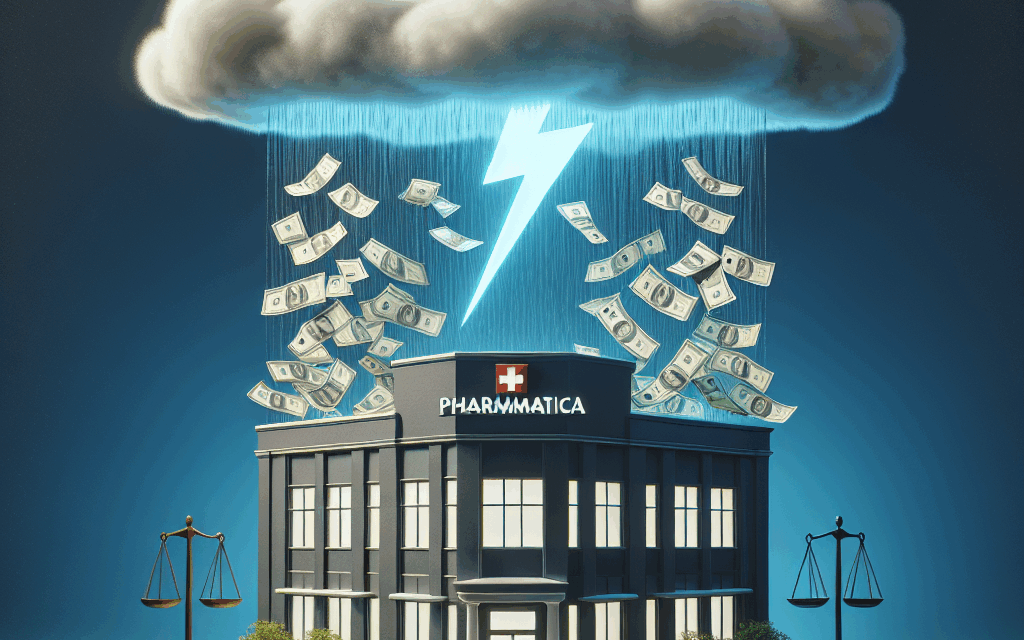CVS Omnicare Faces $949 Million Penalty in Government Fraud Case
The healthcare industry is often fraught with complexities, and the recent case involving CVS Omnicare serves as a stark reminder of the legal and ethical challenges that can arise. In a landmark decision, CVS Omnicare has been ordered to pay a staggering $949 million in penalties due to allegations of fraud against government healthcare programs. This article delves into the details of the case, the implications for CVS Omnicare, and the broader impact on the healthcare sector.
Understanding the Allegations Against CVS Omnicare
CVS Omnicare, a subsidiary of CVS Health, is one of the largest providers of pharmacy services to long-term care facilities in the United States. The allegations against the company center around fraudulent billing practices that reportedly involved overcharging government healthcare programs, including Medicare and Medicaid.
The core of the allegations is that CVS Omnicare engaged in practices that led to the submission of false claims for reimbursement. This included:
- Billing for medications that were not provided.
- Submitting claims for drugs that were not medically necessary.
- Failing to disclose discounts and rebates that should have been applied to the cost of medications.
These practices not only violate federal laws but also undermine the integrity of the healthcare system, which relies on accurate billing and ethical conduct. The government’s investigation revealed a pattern of behavior that suggested a systemic issue within the company, prompting the legal action that culminated in the hefty penalty.
The Legal Proceedings and Outcomes
The legal proceedings against CVS Omnicare were initiated after a whistleblower came forward with evidence of the alleged fraudulent practices. This whistleblower, a former employee, provided detailed documentation that highlighted discrepancies in billing practices and raised concerns about the company’s compliance with federal regulations.
As the case progressed, CVS Omnicare faced intense scrutiny from federal prosecutors and regulatory agencies. The company attempted to defend its practices, arguing that the billing discrepancies were unintentional and that they had taken steps to rectify any issues. However, the evidence presented by the government was compelling, leading to a settlement agreement that included the $949 million penalty.
This settlement is one of the largest in recent history for a case involving pharmacy fraud, underscoring the seriousness of the allegations and the government’s commitment to holding healthcare providers accountable. The settlement will be used to reimburse the government for the fraudulent claims and to fund initiatives aimed at preventing similar misconduct in the future.
Implications for CVS Omnicare and the Healthcare Industry
The financial repercussions of the $949 million penalty are significant for CVS Omnicare. The company will need to allocate substantial resources to cover the settlement, which could impact its profitability and stock performance in the short term. Additionally, the case has raised questions about the company’s internal controls and compliance measures.
In the wake of the settlement, CVS Omnicare is likely to face increased scrutiny from regulators and investors alike. The company will need to demonstrate that it is taking proactive steps to improve its compliance programs and prevent future violations. This may include:
- Enhancing training programs for employees on ethical billing practices.
- Implementing more robust auditing processes to identify and address potential issues.
- Engaging third-party consultants to assess and improve compliance measures.
Beyond the immediate implications for CVS Omnicare, this case serves as a cautionary tale for the entire healthcare industry. It highlights the importance of transparency and ethical conduct in billing practices, particularly in an environment where government funding plays a critical role in healthcare delivery. Other companies in the sector may take this opportunity to review their own practices and ensure they are in compliance with federal regulations to avoid similar legal challenges.
The Role of Whistleblowers in Healthcare Fraud Cases
The CVS Omnicare case underscores the vital role that whistleblowers play in exposing fraud and misconduct within the healthcare industry. Whistleblowers often face significant personal and professional risks when they come forward with allegations, yet their contributions are essential for maintaining accountability and integrity in the sector.
In this case, the whistleblower’s actions not only led to the investigation of CVS Omnicare but also highlighted the importance of protecting individuals who report wrongdoing. The federal government has established various protections for whistleblowers, including the False Claims Act, which allows individuals to file lawsuits on behalf of the government and potentially receive a portion of any recovered funds.
Some key points regarding the role of whistleblowers include:
- Whistleblowers can provide critical evidence that may not be accessible through traditional investigative methods.
- They often have firsthand knowledge of the practices and policies that contribute to fraudulent behavior.
- Whistleblower protections encourage individuals to come forward without fear of retaliation.
However, despite these protections, many potential whistleblowers remain hesitant to report misconduct due to concerns about job security and personal repercussions. It is essential for organizations to foster a culture of transparency and support for whistleblowers to encourage reporting and address issues before they escalate into larger legal problems.
Future Trends in Healthcare Compliance and Regulation
The CVS Omnicare case is likely to influence future trends in healthcare compliance and regulation. As the government continues to crack down on fraud and abuse in the healthcare system, companies will need to adapt to a more stringent regulatory environment.
Some potential trends that may emerge in the wake of this case include:
- Increased regulatory oversight: Regulatory agencies may ramp up their scrutiny of healthcare providers, particularly those involved in billing and reimbursement processes.
- Enhanced compliance training: Companies may invest more in training programs to ensure employees understand the legal and ethical implications of their actions.
- Greater emphasis on technology: Healthcare organizations may leverage technology, such as artificial intelligence and data analytics, to monitor billing practices and identify potential fraud.
Moreover, as the healthcare landscape continues to evolve, companies will need to stay informed about changes in regulations and adapt their practices accordingly. This may involve regular audits, compliance assessments, and ongoing education for employees to ensure adherence to best practices.
Conclusion: Key Takeaways from the CVS Omnicare Case
The CVS Omnicare case serves as a significant reminder of the importance of ethical conduct and compliance in the healthcare industry. The $949 million penalty underscores the serious consequences that can arise from fraudulent practices and highlights the need for transparency and accountability.
Key takeaways from this case include:
- The critical role of whistleblowers in exposing fraud and misconduct.
- The importance of robust compliance programs to prevent violations and protect the integrity of the healthcare system.
- The need for healthcare organizations to adapt to a changing regulatory environment and invest in training and technology to enhance compliance efforts.
As CVS Omnicare navigates the aftermath of this case, it will be essential for the company to demonstrate its commitment to ethical practices and compliance. The broader healthcare industry must also take heed of this case as a call to action to prioritize integrity and accountability in all aspects of their operations.





